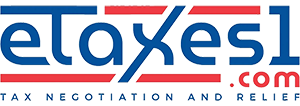Seizures….Can the IRS really take my home, car or business?
Yes, they can, but it is not usually done unless there has been a pretty serious problem that has gone a long time without resolution. Frankly, most IRS employees hate doing seizures. In the old days, some of the IRS “cowboys” enjoyed doing seizures more than a pig likes slop. But, they are often financially unproductive and always very time consuming.
What can the IRS take? For the most part, anything as long as it has sufficient equity. You see, the IRS can only seize your “right, title and interest”. In other words, they can only take what you own. If you own a car and it’s worth $20,000, but the loan on the car is $18,000, they can only seize and sell your $2,000 equity. And with so little equity, the IRS will NOT seize a car or anything else. However, suppose you own a $30,000 Mercedes free and clear. The IRS seizure attaches the entire $30,000 because there is no lien holder against the vehicle.
Before the IRS conducts a seizure, they normally do an investigation to determine the equity in the item to be seized. In 99% of all cases, unless there is at least 20% equity, the IRS will not seize the asset. If you own a home worth $300,000 and the mortgage against it is for $250,000, the IRS would be foolish to seize your home. Why? Because a purchaser buys it subject to any “senior encumbrance”. A “senior encumbrance” is a mortgage, deed of trust, lien or judgment that has priority over the Federal tax lien. Contrary to popular belief, many items do have priority over the tax lien. The general rule is “first in time, first in right” which simply means if the lien, judgment, deed or mortgage was properly filed prior to the IRS lien, it has a priority over the IRS lien.
The IRS normally reduces all seized property by at least 20% from fair market value. That $300,000 home is reduced by at least $60,000 to a reduced sale value of $240,000. Since there is a mortgage of $250,000, there is no equity and the IRS will not seize the property. In fact, under the law, the IRS is precluded from seizing any item in which there is no equity.
If that house is worth $500,000 and the mortgage is $250,000, the IRS may very well seize that property. Fortunately, Congress has made it much more difficult for the IRS to seize personal residences. Except in very flagrant cases, it is unlikely that the IRS will consider seizing your home. Rental properties or vacation homes are a different story and if there is sufficient equity can be seized without great difficulty.
Businesses may be seized as well, but again, it is the exception, not the rule. First, the IRS must get a writ from a Federal judge. Second, once the business is seized, every single item must be inventoried. Can you imagine the amount of work that has to be done to seize something like an auto parts store or a hardware store? The IRS also must investigate to determine if there are any lien holders against property in the business. Then, if the IRS has to go to sale, it must conduct an auction of every item in the business. It is a very, very time consuming task and not one the IRS usually enjoys. In today’s climate, it is very rare to see a business seized. The IRS may try to force the business owner to shut down by continually levying receivables or seizing bank accounts, but a seizure today is pretty unlikely.
To protest a seizure or the mere threat of a seizure you may file Form 911, Application for Taxpayer Assistance Order; Form 9423, Collection Appeal or Form 12153, Application for Collection Due Process Hearing. However, if your case has gone that far, you need professional assistance.

